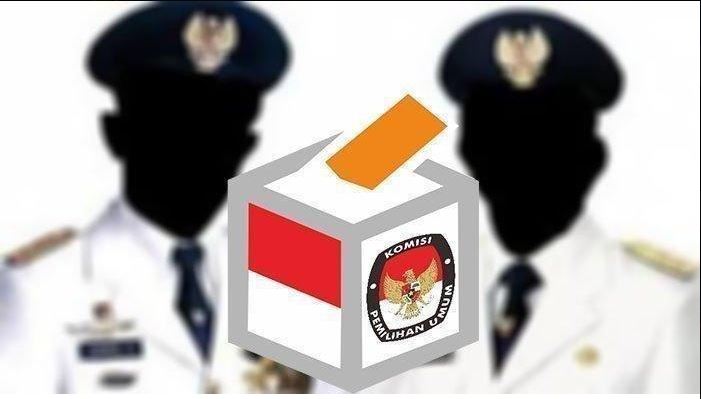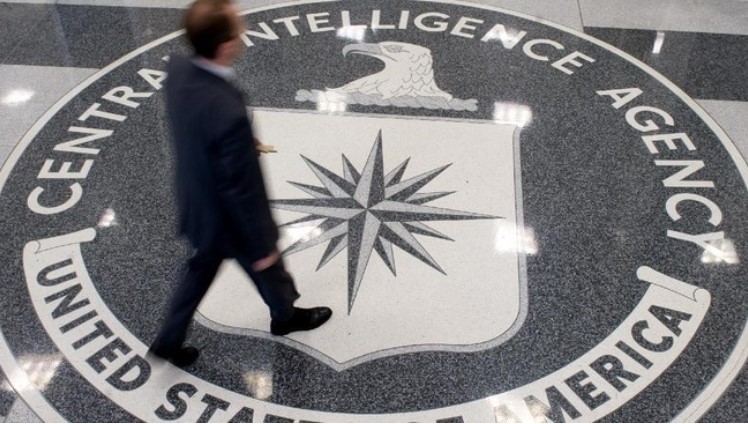
STRATEGIC ASSESSMENT. At the verdict reading hearing, the Constitutional Court refused to accept lawsuit against the age requirement for presidential candidates which was previously amended by Constitutional Court Decision No. 90/PUU-XXI/2023. In the consideration, constitutional judge Enny Nurbaningsih, who read the judgment, emphasized that the decision has legally been valid since it was read in a public session, so it is final and binding, as other Constitutional Court decisions are.
According to cyber security consultant Teguh Aprianto via @secgron on X, the KPU official website was hacked, allegedly resulting in the leak of the voter data of 204 million people. Teguh posted a screenshot with the caption “KPU.GO.ID 2024 Voters RAW DATABASE” from an upload by a hacker named Jimbo.
The General Elections Commission (KPU) announced the schedule for presidential debates. The first and second debate sessions will take place on Dec. 12 and 22, and the third and fourth debates will take place on Jan. 7 and 14. The KPU will hold the final presidential debate on Feb. 4, 10 days ahead of the election day on Feb 14.
General Elections Commission (KPU) Chair Hasyim Asy’ari aid that his party would collaborate with he National Cyber and Encryption Agency (BSSN), National Police Headquarters, the State Intelligence Agency (BIN), and the Communications and Information Ministry to conduct an investigation into the alleged leak of voter data in the 2024 election. Communications and Information Minister Budi Arie Setiadi said that the ministry was working with other state institutions in the case, adding that he had requested the Director General of Applications and Information Technology an investigation into the case.
Answering a question from Press Council Chair Ninik Rahayu on whether the national press was in a good condition, during a discussion with the Indonesian Journalists Association (PWI) at the Press Council Building in Jakarta, Presidential candidate Ganjar Pranowo said the press in Indonesia is currently not doing well. “Is the press doing well? No, it’s not. There are two things that are not good about the press at the moment. One is the business. Disruption in the press is now happening, from conventional to digital. The conventional is starting to be abandoned, the digital is not 100 percent, and this is not good business. And many went bankrupt, new ones emerged. PWI has homework, how we control online media,” he said.
Thomas Noto Suoneto, foreign policy analyst and host of Foreign Policy Talks Podcast, Prabowo, Indonesia’s current minister of defense, is running for the presidency for the third time, after falling short against President Joko “Jokowi” Widodo in 2014 and 2019. Since contesting the 2014 election, Prabowo has been regarded as knowledgeable on foreign policy and well attuned to the geopolitical landscape in which Indonesia is forced to operate. Indeed, during the previous election campaigns, Prabowo was arguably better able to address foreign policy than his rival, Jokowi. Based on a foundation of “Ekonomi Pancasila,” an alternative economic principle fusing the positive aspects of capitalism and socialism, Prabowo is gearing his policy priorities toward the Golden Year of Indonesia 2045, when the country will mark the centennial of its independence from Dutch colonial rule.
Nurhadi Sucahyo, Voice of America reporter, the campaign period for the election of the president and members of Parliament, both centrally and in the regions, has begun, and will last until February 10, 2024. Of course, all candidates require socialization in order to be elected by society. One is through mass media. Online or online media has become a phenomenon in Indonesia, as so many new online media have emerged in recent times. Both prospective members of the House, the presidential campaign team, and all relevant parties in the Election, put up ads and socialized.
Frontrunner Prabowo Subianto of Gerindra Party kicked off his presidential campaign over the weekend in his stronghold of West lava, days after his two rivals hit the road on the first official day of the campaign season to secure their spots in the run-off. The defense minister began in a rally in Tasikmalaya.
Presidential candidate Anies Baswedan at the Conference on Indonesia Foreign Policy 2023 said he would come to the U.N. General Assembly if he wins the 2024 presidential election. He emphasized the importance of Indonesia participating in the U.N. session to show its active role in international world. Anies also said that if he were to become the next president, he would travel to Palestine as a form of moral support from Indonesia in order to obtain true independence as soon as possible.
Prabowo-Gibran National Campaign Team (TKN) spokesperson Munafrizal Manan, in a discussion held by Amnesty International in Jakarta said the presidential and vice presidential candidate number two ensures that all Indonesian citizens, including non-binary people or groups who do not want to be identified according to their gender, have equal rights in the eyes of the constitution. Prabowo, according to Munafrizal, is committed to ensuring equal rights of all Indonesian citizens in the eyes of the state.
The General Elections Commission (KPU) officially announced the presidential and vice presidential debate schedule for the 2024 elections on Friday. Vice presidential candidates will attend the 2024 presidential election debate, which is held five times. In contrast to the 2019 presidential election, there will be no vice president debate this time. According to KPU Chair Hasyim Asy’ari, the format change was made so that voters could see the level of cooperation between each pair of presidential candidates. Meanwhile, KPU Commissioner Idham Holik denied that the presidential and vice presidential debates would be dropped due to the format change. This is because special debates for presidential candidates and vice presidents are directly governed by Election Law No. 7/2017.
Deflecting speculation that the General Elections Commission (KPU) is looking to scrap the upcoming rounds of vice-presidential debates, the poll body has assured that it will comply with prevailing regulations, including setting aside two of the five rounds of debates for VP contenders. KPU Chair Hasyim Asy’ari said all three pairs of presidential and vice-presidential candidates would be “present” for all rounds of the debate, but that they would be given different proportions of speaking time in each round.
Muhamad Haripin, Research Coordinator of Conflict, Defence and Security Studies at the National Research and Innovation Agency (BRIN), and Adhi Priamarizki, Research Fellow with the Indonesia Programme, S. Rajaratnam School of International Studies, Nanyang Technological University (RSIS NTU), on 22 November, President Joko “Jokowi” Widodo inaugurated General Agus Subiyanto as the new chief of the Indonesian Armed Forces (Tentara Nasional Indonesia, or TNI). Agus’ appointment raised eyebrows for a number of reasons.
One was the premature process of his nomination. General Subiyanto went from Army Chief of Staff (Kasad) to TNI Chief in just less than a month. Another was that his military career showcased an interesting track record, with the general having held a number of positions that intersected with President Jokowi’s political career. The elevation of Agus Subiyanto has completed Jokowi’s concerted effort to cement his political power amidst the upcoming national elections in 2024. As an incumbent in his last year of office, Jokowi has gone the extra mile to ensure that he is surrounded only by trusted confidantes who have supported him and will remain loyal to him.
Pat Walsh, co-founder of Inside Indonesia magazine and was an adviser to East Timor’s CAVR (Comissão de Acolhimento, Verdade e Reconciliação) and its successor bodies, while Australia switches off to take its long summer break and is largely indifferent to what’s happening next door, Indonesia is seized by election fever. On 14 February 2024, over 200 million Indonesians will decide who to elect as their new president, members of parliament, provincial and municipal representatives. Of the three men who seek to be Indonesia’s next president, one stands out. Not because he is Indonesia’s Barack Obama but for less flattering reasons. The candidate in question is Prabowo Subianto. Prabowo differs from his competitors, Ganjar Pranowo and Anies Baswedan, in significant ways. These include his pre-reformasi connection to the discredited Suharto era, his military record, particularly during Indonesia’s war in East Timor, his disregard for the rule of law and suspect human rights record. In addition, Prabowo has run for high office at least twice before but has never been elected to any position or had legislative experience.
Arlina Arshad, The Straits Times’ Indonesia bureau chief, Islam has been at the front and centre of Indonesia elections in the past decade… Analysts say a repeat of identity politics based on Islam is unlikely in the presidential and legislative elections, slated for Feb 14, 2024… For the first time in Indonesia’s election history, young people below 40 years old will dominate the polls in 2024, accounting for 56 per cent of the electorate. Analysts say these millennial and Gen Z voters tend to be more apathetic about national political issues and developments compared with voters from previous generations. They are also less guided by old familial loyalties to a particular party. What resonates more with young voters are bread-and-butter issues, like opportunities to get good jobs and affordable homes. Dr Ambang Priyonggo, a political analyst from Multimedia Nusantara University, told The Straits Times that playing identity politics would be a wrong move to win votes this round.
Johannes Nugroho, a journalist and political analyst from Surabaya, Indonesia, campaigning for Indonesia’s presidential election kicked off officially on Nov 28, with the three contenders trying various means, singing and dancing included, to woo voters and differentiate themselves from the pack. Yet, even in the battle to choose the next president of Indonesia, the shadow of the incumbent, Jokowi, looms large. The growing estrangement between Mr Widodo and his own party, PDI-P, which is chaired by former president Megawati Sukarnoputri, could no longer be papered over when both of the president’s sons recently jumped ship. As much as it is about deciding who will be Indonesia’s next president, the 2024 election is also a referendum on Jokowism. Will Indonesians give Jokowi’s development vision and his succession plan their vote of confidence or will they choose a change of direction instead? Whatever post-Jokowi Indonesia looks like, one thing is clear: The president has, for better or worse, left his mark on the next chapter of Indonesian politics.
The General Elections Commission (KPU) revealed the central themes for the upcoming five presidential debates. Idham revealed that the first debate, scheduled for Dec. 12, at the KPU headquarters, will revolve around topics encompassing law, human rights, governance, anti-corruption efforts and democratic strengthening, Antara news agency reported. The second debate on Dec. 22 will focus on defense, security, geopolitics, and international relations. Scheduled for Jan. 7, the third debate will explore economic facets, including the people’s economy, digital economy, social welfare, investment, trade, digital taxation, finance, and state budget management. The final debate on Feb. 4 will spotlight information technology, public service enhancement, misinformation (hoaxes), intolerance, education, health (post-COVID) and employment.
The General Elections Commission (KPU) Commissioner August Mellaz in a press statement emphasized that the commission would not reduce or add to the format of the debate for presidential candidates during the 2024 election campaign. The format used by the KPU in holding debates for presidential candidates is in accordance with the Election Law and the KPU regulation. Mellaz disclosed that the KPU meeting with representatives of the three candidates’ campaign teams resulted in a number of agreements. The agreement covers everything from the implementation of the debate to the time and location of the debate.






